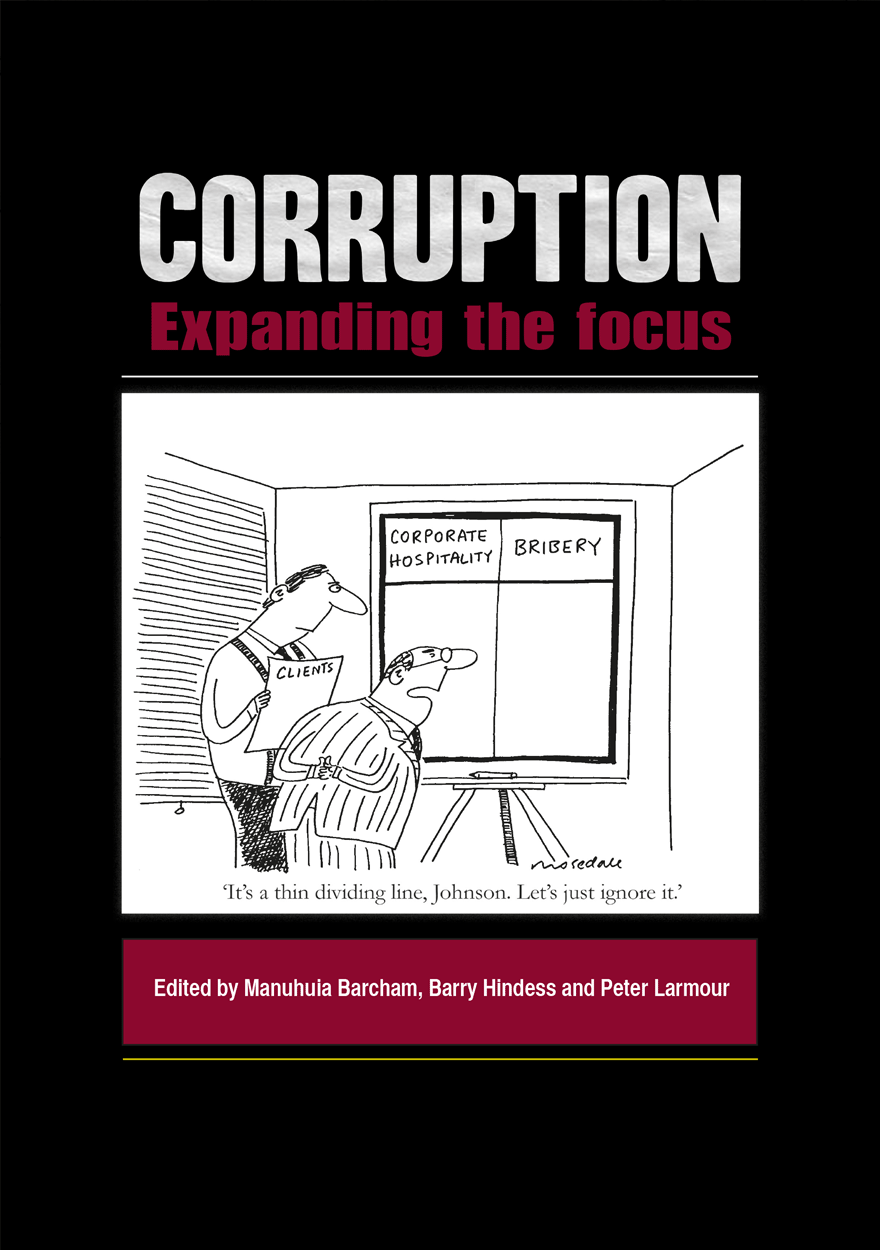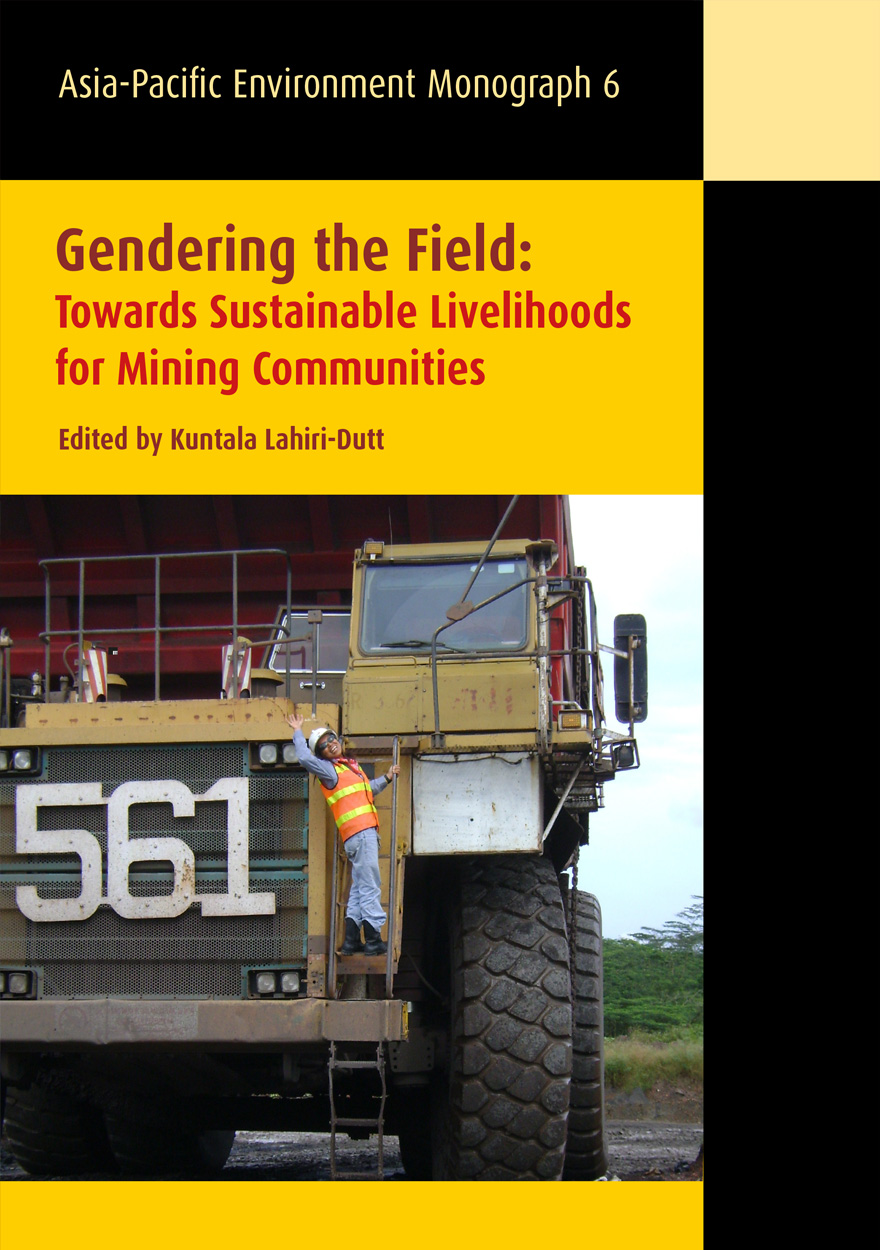Search titles
Displaying results 51 to 60 of 78.

Securing Village Life »
Development in Late Colonial Papua New Guinea
Authored by: Scott MacWilliam
Publication date: May 2013
Securing Village Life: Development in Late Colonial Papua New Guinea examines the significance for post-World War II Australian colonial policy of the modern idea of development. Australian officials emphasised the importance of bringing development for both the colony of Papua and the United Nations Trust Territory of New Guinea. The principal form that development took involved securing smallholders against the tendencies of other forms of capitalist development that might have separated households from land. In order to make household occupation of their holdings more secure and at higher standards of living, the colonial administration coordinated and supervised increases in production of crops and other agricultural produce.
Contrary to suggestions that colonial policy and practice ignored indigenous agriculture and concentrated on plantation crops grown by international firms and expatriate owner-occupiers, the study shows how the main focus was instead upon increasing smallholder output for immediate consumption as well as for local and international markets. Simultaneously development stimulated increases in consumption, including of goods produced through manufacturing processes and imported into the colony.
Only as Independence approached was the pre-eminence of the earlier focus upon smallholders weakened. In part the change occurred due to the political advance of the indigenous capitalist class and their allies seeking to extend their base in largeholding agriculture and related commercial activities. This advance and the uncertainty over which form of development would prevail once indigenes held state power in post-colonial Papua New Guinea stood in marked contrast to the definite direction pursued under the colonial administration of the 1950s and early 1960s.

Politics, Development and Security in Oceania »
Edited by: David Hegarty, Darrell Tryon
Publication date: April 2013
The chapters in this volume canvass political change and development across the Pacific Islands from a variety of perspectives, each contributing to the analysis of a region growing in complexity and in confidence. They fall neatly into three sections: Oceania and its Inheritance; Oceania – Current Needs and Challenges; and Oceania and its Wider Setting.
The new states of the Pacific have demonstrated considerable resilience, and in many cases, an extraordinary capacity to bounce back from difficulty and to maintain optimism for the future. The continuing professionalisation of public management across the region is building on that tradition. The growth of civil society organisations is also beginning to play a positive role in policy and implementation. Donors are becoming more coherent in their strategies, more attuned to the realities of generating development outcomes in small island states, and are beginning to acknowledge and map progress.
This book explores these themes of governance, development and security that signal both continuity and change in the Pacific’s pattern of islands.

Situating Women »
Gender Politics and Circumstance in Fiji
Authored by: Nicole George
Publication date: November 2012
Since the time of decolonisation in Fiji, women’s organisations have navigated a complex political terrain. While they have stayed true to the aim of advancing women’s status, their work has been buffeted by national political upheavals and changing global and regional directions in development policy-making. This book documents how women activists have understood and responded to these challenges. It is the first book to write women into Fiji’s postcolonial history, providing a detailed historical account of that country’s gender politics across four tumultuous decades. It is also the first to examine the ‘situated’ nature of gender advocacy in the Pacific Islands more broadly. It does this by analysing trends in activity, from women’s radical and provocative activism of the 1960s to a more self-evaluative and reflexive mood of engagement in later decades, showing how interplaying global and local factors can shape women’s understandings of gender justice and their pursuit of that goal.

Corruption »
Expanding the Focus
Edited by: Manuhuia Barcham, Barry Hindess, Peter Larmour
Publication date: September 2012
Recent years have seen an unprecedented rise in interest in the topic of corruption, resulting in a rising demand for suitable teaching materials. This edited collection brings together two different approaches to the study of corruption — the first represented by a large, practically-oriented literature devoted to identifying the causes of corruption, assessing its incidence and working out how to bring it under control; the second by a smaller collection of critical literature in political theory and intellectual history that addresses conceptual and historical issues concerned with how corruption should be, and how it has been, understood — and uses the second to reflect on the first.
This collection will be of interest to post-graduate students in political science, law, sociology, public policy and development studies, to senior public servants, and to professionals working in multilateral agencies, NGOs and the media.

East Asia Forum Quarterly: Volume 4, Number 2, 2012 »
Publication date: May 2012
East Asia Forum Quarterly grew out of East Asia Forum (EAF) online, which has developed a reputation for providing a platform for the best in Asian analysis, research and policy comment on the Asia Pacific region in world affairs. EAFQ aims to provide a further window onto research in the leading research institutes in Asia and to provide expert comment on current developments within the region. The East Asia Forum Quarterly, like East Asia Forum online, is an initiative of the East Asia Forum (EAF) and its host organisation, the East Asian Bureau of Economic Research (EABER) in the Crawford School of Economics and Government in the College of Asia & the Pacific at The Australian National University.
Download for free
Not available for purchase

East Asia Forum Quarterly: Volume 4, Number 1, 2012 »
Publication date: February 2012
East Asia Forum Quarterly grew out of East Asia Forum (EAF) online, which has developed a reputation for providing a platform for the best in Asian analysis, research and policy comment on the Asia Pacific region in world affairs. EAFQ aims to provide a further window onto research in the leading research institutes in Asia and to provide expert comment on current developments within the region. The East Asia Forum Quarterly, like East Asia Forum online, is an initiative of the East Asia Forum (EAF) and its host organisation, the East Asian Bureau of Economic Research (EABER) in the Crawford School of Economics and Government in the College of Asia & the Pacific at The Australian National University.
Download for free
Not available for purchase

Fishing for Fairness »
Poverty, Morality and Marine Resource Regulation in the Philippines
Authored by: Michael Fabinyi
Publication date: January 2012
Fishing for Fairness develops an explicitly cultural perspective on environmental politics in the Philippines by analysing the responses of fishers to marine resource regulations. In the resource frontier of the Calamianes Islands, fishing, conservation and tourism provide the context where competing visions of how to engage with marine resources are played out. The book draws on data from ethnographic fieldwork with fishers, government and NGO officials, fish traders and tourism operators to show how the strategic responses of fishers to management initiatives are couched within particular cultural idioms. Tapping into broader notions of morality in the Philippines, fishers express a discourse that emphasises their poverty and the obligations of the wealthy to treat them with fairness. By deploying this discourse, fishers are able to reframe what are—on the surface—questions of environmental management into issues about poverty within particular social relationships. By using a cultural political ecology framework to analyse fishers’ responses to regulation, the book emphasises the distinctive ways in which marginalised people in the Philippines resist and reframe resource management initiatives. Fishing for Fairness will appeal to both academics and policy makers interested in marine resource management, political ecology, anthropology and development studies particularly throughout the Asia-Pacific.

Working Together in Vanuatu »
Research Histories, Collaborations, Projects and Reflections
Edited by: John Taylor, Nick Thieberger
Publication date: October 2011
This collection is derived from a conference held at the Vanuatu National Museum and Cultural Centre (VCC) that brought together a large gathering of foreign and indigenous researchers to discuss diverse perspectives relating to the unique program of social, political and historical research and management that has been fostered in that island nation. While not diminishing the importance of individual or sole-authored methodologies, project-centered collaborative approaches have today become a defining characteristic of Vanuatu’s unique research environment. As this volume attests, this environment has included a dynamically wide range of both ni-Vanuatu and foreign researchers and related research perspectives, most centrally including archaeologists and anthropologists, linguists, historians, legal studies scholars and development practitioners. This emphasis on collaboration has emerged from an ongoing awareness across Vanuatu’s research community of the need for trained researchers to engage directly with pressing social and ethical concerns, and out of the proven fact that it is not just from the outcomes of research that communities or individuals may be empowered, but also through their modes and processes of implementation, as through the ongoing strength and value of the relationships they produce. With this in mind, the papers presented here go beyond the mere celebration of collaboration by demonstrating Vanuatu’s specific environment of cross-cultural research as a diffuse set of historically emergent methodological approaches, and by showing how these work in actual practice.

Gendering the Field »
Towards Sustainable Livelihoods for Mining Communities
Edited by: Kuntala Lahiri-Dutt
Publication date: March 2011
The chapters in this book offer concrete examples from all over the world to show how community livelihoods in mineral-rich tracts can be more sustainable by fully integrating gender concerns into all aspects of the relationship between mining practices and mine affected communities. By looking at the mining industry and the mine-affected communities through a gender lens, the authors indicate a variety of practical strategies to mitigate the impacts of mining on women’s livelihoods without undermining women’s voice and status within the mine-affected communities.
The term ‘field’ in the title of this volume is not restricted to the open-cut pits of large scale mining operations which are male-dominated workplaces, or with mining as a masculine, capital-intensive industry, but also connotes the wider range of mineral extractive practices which are carried out informally by women and men of artisanal communities at much smaller geographical scales throughout the mineral-rich tracts of poorer countries.

Passage of Change »
Law, Society and Governance in the Pacific
Edited by: Anita Jowitt, Tess Newton
Publication date: November 2010
Numerous issues face Pacific states trying to find their way in the early 21st century. Countries are striving to secure the benefits of modernisation. Governance, law and order are needed to reach such a goal, but development cannot be at the price of culture or the environment. The question of how to develop and maintain sound legal systems and legal rules whilst maintaining the unique cultural heritages within the Pacific is a challenge with no easy answer. This interdisciplinary collection locates issues of law and governance within the particular socio-political context of the Pacific island region, presenting sociological, anthropological and political insights alongside jurisprudential analysis. Key issues including corruption, the role of customary law in modern legal systems, the place of human rights in the Pacific, environmental issues and the structure of the state are explored from a variety of perspectives.



